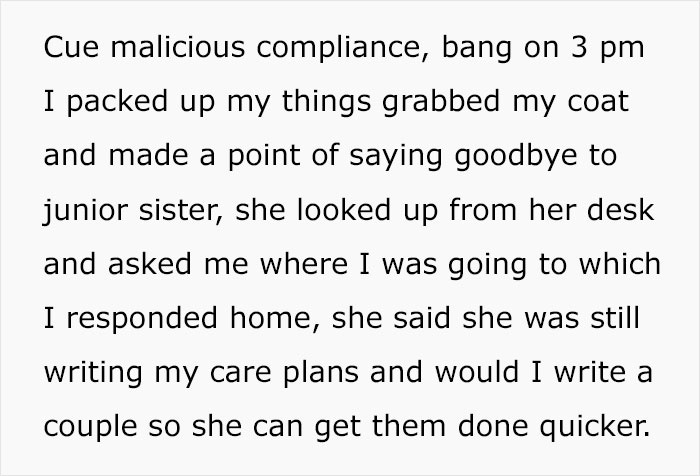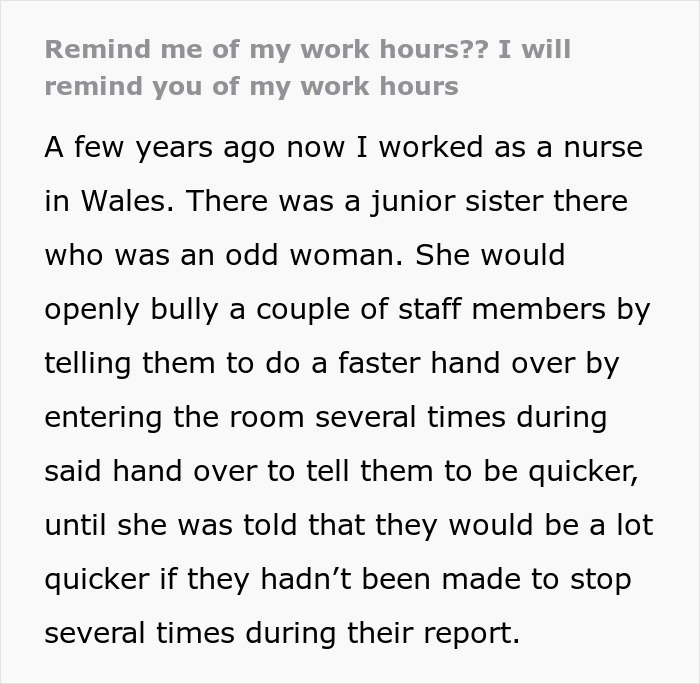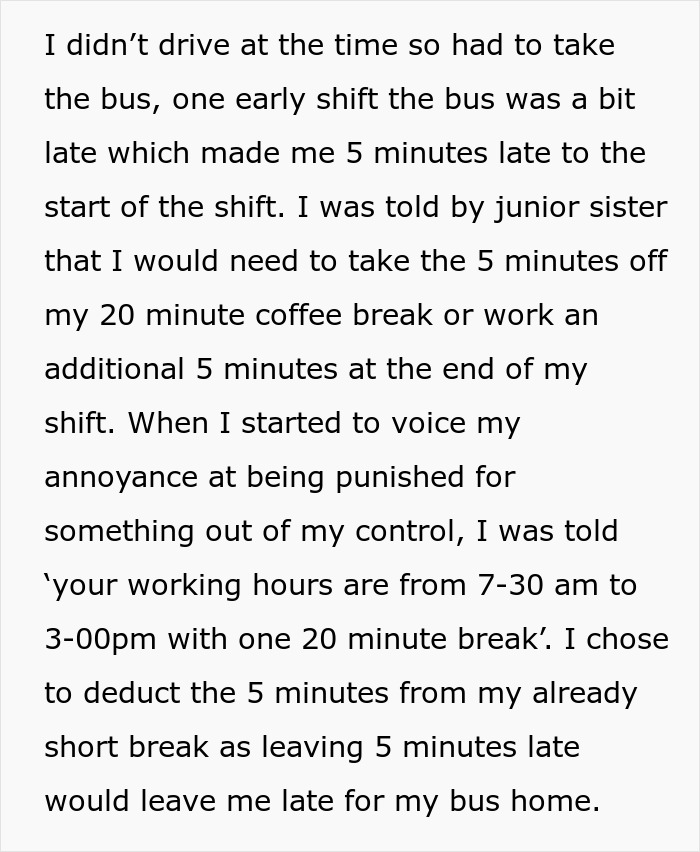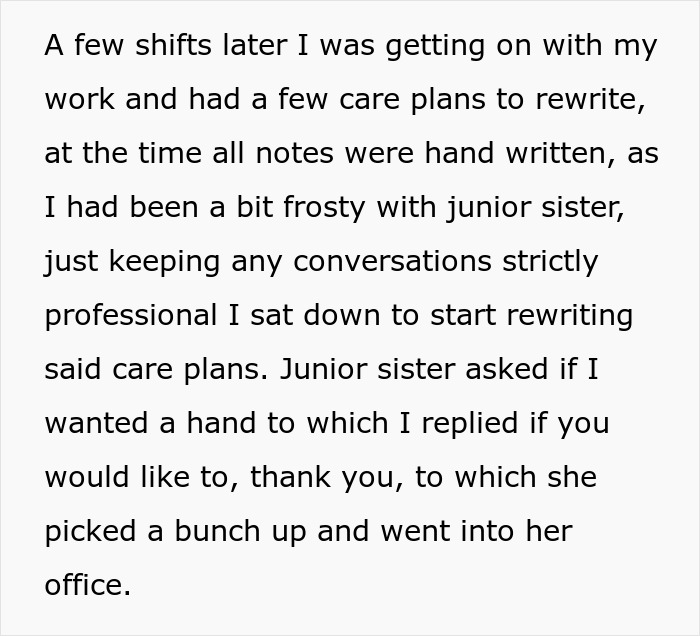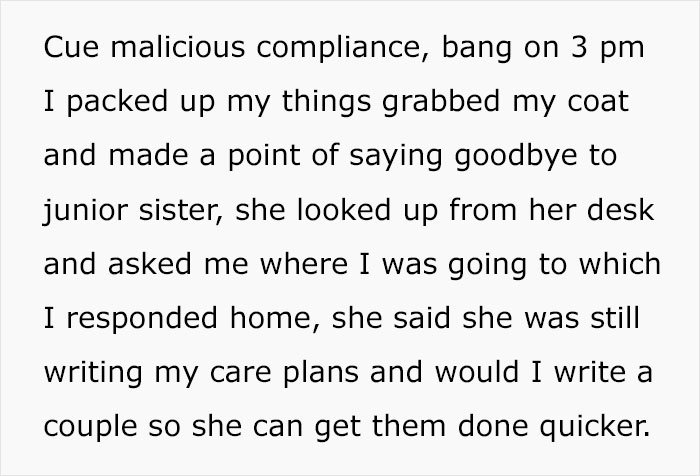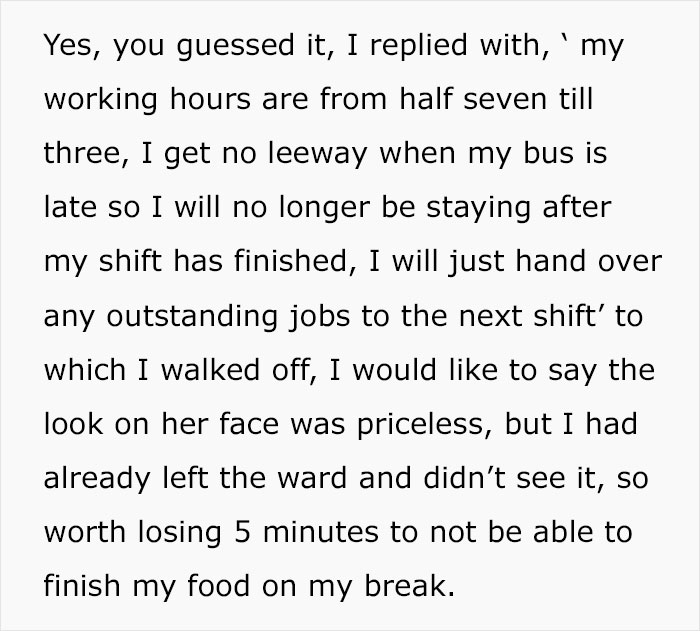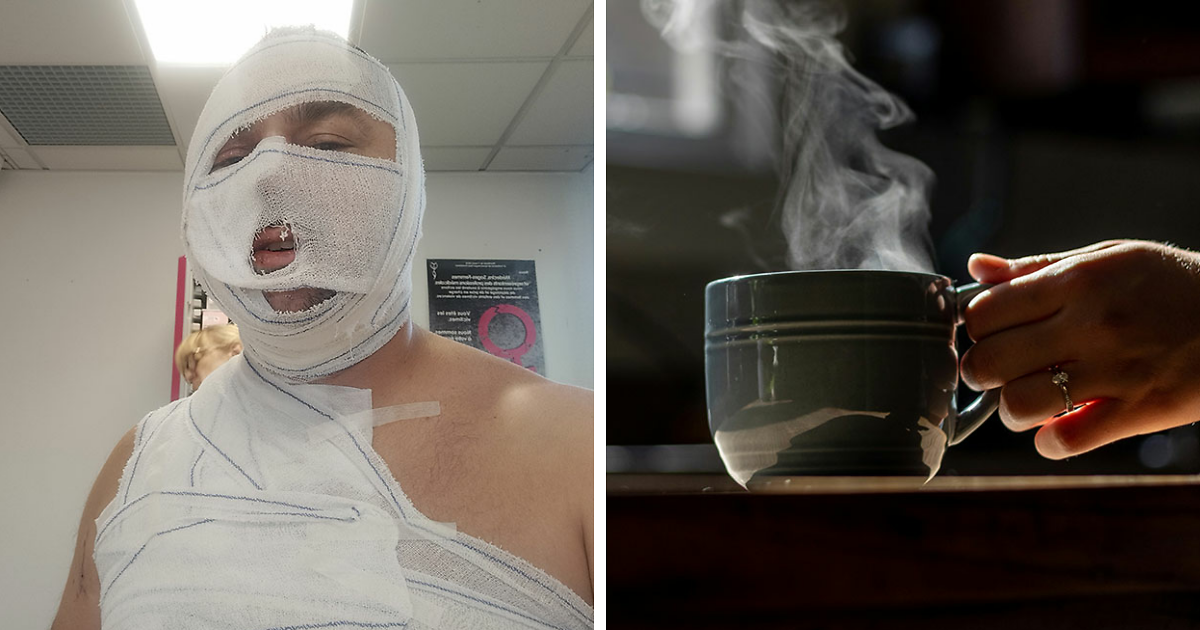“Nurse Outsmarts Boss: A Clever Twist on Strict Working Hours Sparks Office Drama!”
So, the next time her manager asked her to work overtime later, she walked out right when her shift was over
Image credits: YuriArcursPeopleimages (not the actual photo)
Image credits: Maleficent-Way8694
The author explained the nurse grade system that hospitals used back in the day
u/Maleficent-Way8694’s post gained popularity on the Malicious Compliance subreddit pretty quickly. However, not everyone was familiar with the hierarchy of nursing professionals in the UK. The author did explain it quickly in the comments, but we asked u/Maleficent-Way8694 to clarify what “First sister” meant and what was her own role.
“‘Sister’ is the term that was used in nursing to refer to the ward manager,” the Redditor told us. Basically, the hierarchy would go according to the alphabet, with the person on top being in grade G and the lowest ranks being A and B.
Auxiliary nurses and healthcare support workers would belong to grades A and B. Above them were enrolled nurses in grades C and D. u/Maleficent-Way8694 explains that this rank is no longer a thing. Next were grades D and E, assigned to staff nurses, registered nurses, and normal staff nurses.
Grade F were the junior sisters and senior staff nurses, and one grade above them (G) — the sister. u/Maleficent-Way8694 says that they were also called ward managers or unit managers. And, at the top, was the leader — the matron.
Today, the system is different: instead of grades, now there are five bands (Band 5, Band 6, Band 7, Band 8 and 9). The role of a sister is to run each ward/unit and ensure quality nursing care, essentially being a team manager. The author herself was a standard nurse.
The Redditor says those who feel mistreated at work need to find the strength to raise their grievances to HR
Aside from the first sister’s treatment of her fellow nurses, many people also called out the fact that the author only had 20-minutes lunch breaks. In one of her comments, the author explained other reasons why nursing is so hard and how she wouldn’t recommend it to others.
However, we asked her to share some words of wisdom with those who might currently be working as nursing professionals. “I would advise all staff to keep a diary with dates, times, names, etc.,” the Redditor says right off the bat.
“And if the same name keeps coming up, compile a timeline of events and go to your union to ask for a meeting with HR to raise a grievance. In fact, I would advise to keep a diary in any job [where] you are [feel] mistreated.”
The Redditor says that the work culture hasn’t changed much since then. “[It’s] the same now as it was way back when I first became an auxiliary nurse back in the mid-’90s,” she says. “You work as a team and finish as a team. If a colleague needs help, [you] give it, if something happens, you keep on working until it’s convenient to leave.”
Not much has changed in the work culture for nursing professionals, the author says
“Obviously if there is an emergency it is implied that you will stay until everything calms down,” the Redditor adds. “Same with breaks: if the ward is really busy, it might not be possible to actually take your break. I don’t know of any times or any staff who tried to log it as overtime.”
u/Maleficent-Way8694 told us some specifics about what a nurse’s job entailed. “When the ward wasn’t as busy then we would clean until it was time to leave, all commodes taken apart and cleaned properly, bedsides tidied up and cleaned, shelves cleaned and restocked, etc. There was always something to clean!,” the Redditor shares.
“Care plans at the time were handwritten as per patient needs and reassessed every 10 days and written out again for the next 10 days. All notes were handwritten, all observations were handwritten, which included fluid balance sheets, limb obs, etc.”
“Dressing care plans were handwritten, so, when there was the afternoon handover, there was a two-hour overlap of staff to get all your notes written (for maybe 16 patients), cleaning, dressings, admissions, discharges, etc.”
The author also responded to some comments, detailing how it wasn’t a very good working environment
Many people applauded the author for how she dealt with her superior

